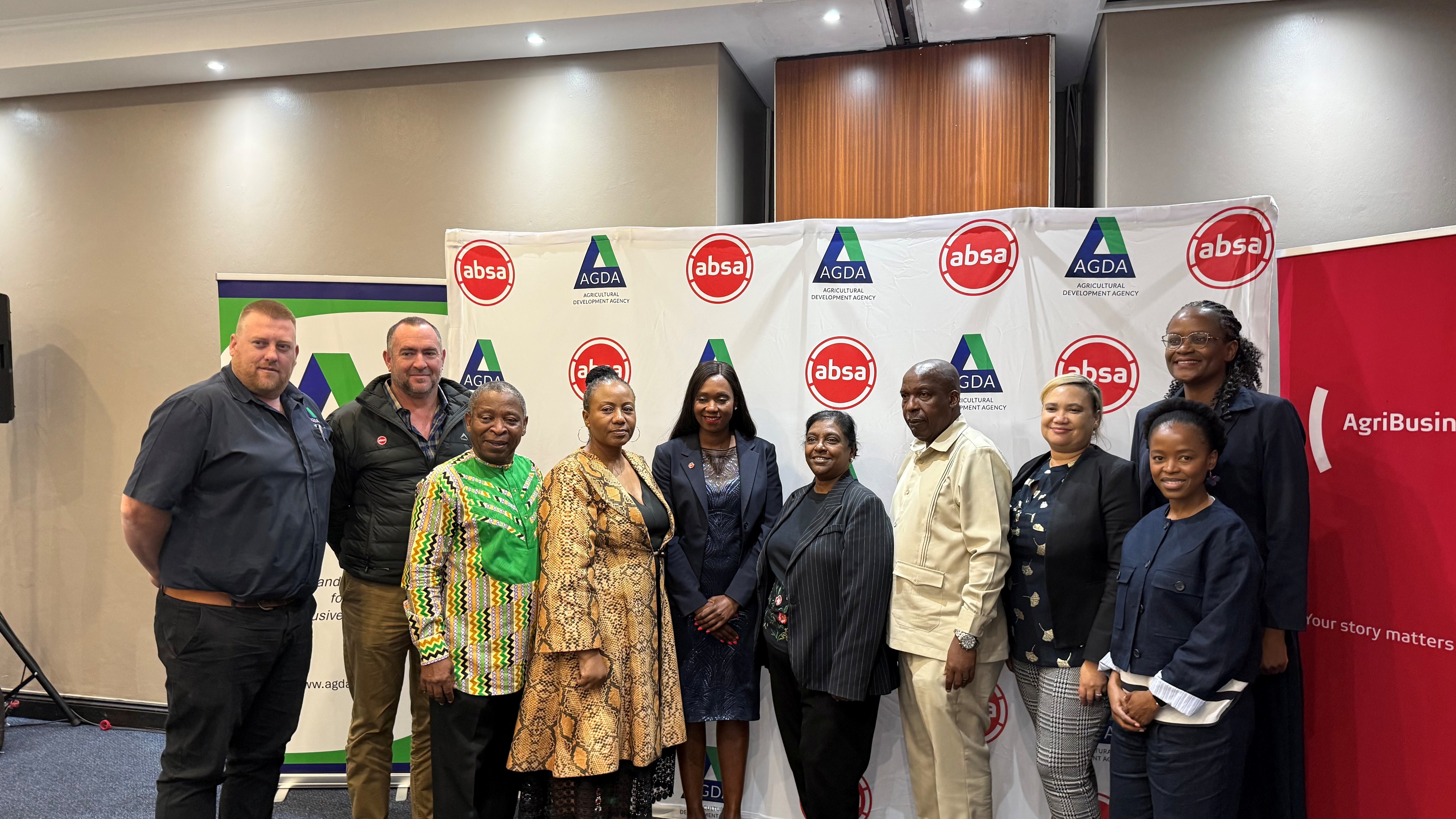
BLOG
AGDA: Agricultural Stakeholder Roundtable Dialogue

Agbiz attended the Agricultural Stakeholder Roundtable Dialogue, hosted by the Agricultural Development Agency (AGDA) in partnership with Absa and other sector stakeholders. The event gathered representatives from government, financial institutions, agribusinesses, and development partners to unpack the challenges and opportunities in advancing financial inclusion, improving access to finance, and driving sustainable growth within South Africa’s agricultural sector.
The dialogue aimed to deepen collaboration across sectors and establish a more coordinated approach to agricultural financing. With South Africa’s agriculture sector identified as a key driver for inclusive growth and job creation, the discussions focused on aligning public and private sector efforts under the Agricultural Agro-Processing Master Plan (AAMP). The session emphasised the urgent need to address structural barriers that limit smallholder and emerging farmers’ access to affordable finance and to design funding mechanisms that are responsive to their realities.
Key Insights and Themes
1. Inclusivity and Collaboration
AGDA CEO Leona Archary set the tone by highlighting that while progress has been made, the agricultural finance landscape remains fragmented. She called for stronger alignment and collective accountability, noting that inclusion must go beyond participation, it must translate into shared outcomes and equitable access to resources. Her remarks underscored the importance of an ecosystem approach that connects government programmes, financial institutions, and agribusiness support structures.
2. Leveraging Partnerships for Impact
Sanah Gumede, Managing Executive for Strategy and Customer Value Management at Absa, reflected on the potential of strategic partnerships to unlock growth. Drawing inspiration from the automotive sector’s collaborative model, she encouraged similar cross-sector coordination in agriculture to build scalable, sustainable pathways for smallholder and new-era farmers. Gumede also emphasised that financial inclusion cannot exist in isolation from capacity-building, training, and market access.
3. Bridging Policy and Practice
Elder Mtshiza, Programme Manager at the Department of Agriculture, Land Reform and Rural Development, and also responsible from the Department’s side for blended finance, stressed the need for policy alignment and long-term collaboration. She noted that development partners play a crucial role in ensuring that access to finance is accompanied by mentorship, record-keeping, governance support, and market readiness. Her comments highlighted that sustainable agricultural transformation requires an integrated approach that blends financial solutions with farmer development.
4. Defining Financing Pathways
Dr Langelihle Simela of Absa presented a comprehensive view of the different financing tiers within the sector, from microfinance for smallholders to blended and commercial finance for scalable enterprises. She noted that readiness and business formalisation are critical indicators of success and that financing models must be tailored to the different stages of farm growth. Her insights reinforced the need for financial literacy and structural support to ensure smallholders can transition into commercially viable operations.
5. Financing Innovation and Gender Inclusion
Althea Discala, CEO of Discala Holdings, highlighted the need for more innovative and inclusive financing instruments, particularly those that support women-led agribusinesses. She spoke about the role of blended finance, equity, and patient capital in de-risking agricultural investment and enabling long-term transformation. Her remarks echoed the collective sentiment that financial systems must evolve to become more adaptive, accessible, and socially responsive.
The Agricultural Stakeholder Roundtable Dialogue served as an important platform for building consensus on how South Africa can achieve inclusive agricultural finance through partnership, innovation, and shared vision. It reinforced that financial inclusion is not only about credit access, but also about enabling participation, empowerment, and long-term resilience.
Agbiz’s participation underscored its ongoing commitment to strengthening collaboration between the private sector, financial institutions, and government to build a more inclusive, competitive, and sustainable agricultural economy. As one of the founding members of AGDA, Agbiz originally negotiated the blended finance programme but recognised and supported the need for a separate, dedicated entity to drive transformation, financial inclusion, and farmer development. Agbiz continues to serve on AGDA’s Board, and its diverse composition makes it well positioned to act as an aggregator and facilitator between the public and private sectors.
The insights shared during the dialogue will contribute to ongoing discussions on aligning finance mechanisms under the AAMP and ensuring that emerging and small-scale farmers have equitable access to the opportunities within South Africa’s agricultural value chains.
Temba Msiza, Agbiz

0 COMMENTS
LEAVE A COMMENT